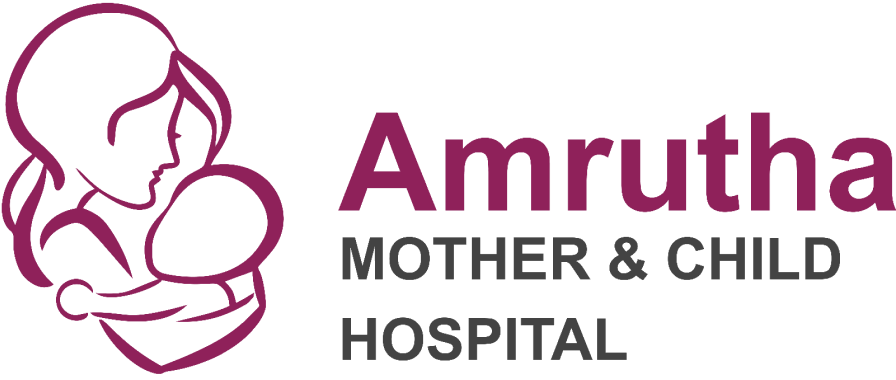

Obstetricians in Kakinada
Obstetricians in Kakinada provide specialized medical care for women during pregnancy, childbirth, and the postpartum period. At Amrutha Hospitals, Kakinada, our experienced obstetricians deliver comprehensive maternity care with a strong focus on the health and safety of both mother and baby.
Our services include routine pregnancy checkups, ultrasound scans, fetal monitoring, and expert management of pregnancy-related complications. From prenatal care to safe delivery and postnatal support, we provide trusted and compassionate pregnancy care for every stage of motherhood. If you are looking for the best obstetricians in Kakinada, Amrutha Hospitals is here to support you throughout your pregnancy journey.
Procedures Provided by Obstetricians in Kakinada
1. Procedure in Obstetric Care
Our obstetricians in Kakinada help women plan a safe and healthy pregnancy through:
Preconception counseling: Guidance on family planning, lifestyle adjustments, and pre-pregnancy health checkups to ensure a healthy start to pregnancy.
Initial Prenatal Visit: A thorough review of medical history, physical exams, lab tests, and ultrasound to confirm pregnancy and estimate the due date.
Routine Check-ups: Regular prenatal visits to monitor the health of both mother and baby, including physical exams, blood pressure checks, weight tracking, and fetal heart rate monitoring.
Ultrasound Scans: Performed at key stages of pregnancy (typically at 12 weeks, 20 weeks, and as needed) to track fetal growth and development.
High Risk Pregnancy Care: With advanced care and personalized guidance, complications are managed proactively for positive outcomes.
Fetal Medicine Facilities: provides advanced care for unborn babies, ensuring early detection and management of complications. Equipped with cutting-edge technology, they offer specialized services like fetal ultrasounds, genetic testing, and in-utero treatments.
2. Labor and Delivery
![]()
Vaginal Delivery: The most common method of childbirth, where the baby is delivered through the birth canal.
![]()
Cesarean Section (C-Section): A surgical procedure for delivering the baby through incisions in the mother’s abdomen and uterus, performed either as a planned procedure or in emergency situations.
Labor Monitoring: Continuous monitoring of the baby’s heart rate and the mother’s contractions throughout labor to ensure both are stable.
Pain Management: A variety of pain relief options, including epidurals, analgesics, and natural methods, are discussed with the mother to choose the best approach.
Post-delivery Care: Immediate care for the newborn, including APGAR scoring, as well as postpartum support for the mother, focusing on breastfeeding and recovery.
3. Postpartum Care
Postnatal Visits: Follow-up visits after childbirth to support the mother’s physical and emotional recovery, focusing on breastfeeding, uterine healing, and addressing any signs of postpartum depression.
Birth Control and Family Planning: Post-delivery consultations to discuss options for future pregnancies, birth control methods, and long-term reproductive health planning.
Key Considerations in Obstetric Care
Health of the Mother: Regular checkups are essential to monitor conditions like high blood pressure, gestational diabetes, and preeclampsia, which can impact pregnancy.
Health of the Baby: Ultrasounds and prenatal tests are conducted to ensure the baby is developing properly and free from complications.
Diet and Exercise: Mothers receive guidance on proper nutrition, weight management, and safe physical activities to support a healthy pregnancy.
Medical History: It is important to discuss past pregnancies, surgeries, and any chronic conditions with the obstetrician to ensure personalized care.
Emotional and Mental Health: Pregnancy can bring emotional challenges, so psychological support is provided throughout pregnancy and the postpartum period to ensure the mother’s mental well-being.
Frequently Asked Questions (FAQs) about Obstetrics
1. What does an Obstetrician do?
Obstetricians specialize in managing pregnancy, childbirth, and postpartum care, ensuring the health of both mother and baby.
2. When should I start seeing an obstetrician during pregnancy?
Ideally, schedule your first visit as soon as you confirm your pregnancy, usually around 6-8 weeks.
3. What are the routine tasks during pregnancy?
Tests include blood work, ultrasounds, glucose screening, and genetic testing to monitor maternal and fetal health.
4. What is the difference between an Obstetrician and a Gynaecolgist?
Obstetricians focus on pregnancy and childbirth, while gynecologists address broader women’s health issues unrelated to pregnancy.
5. How can I prepare for labor and delivery?
Attend prenatal classes, create a birth plan, practice relaxation techniques, and discuss pain management options with your obstetrician.
6. What complications can an Obstetrician manage during pregnancy?
Obstetricians handle complications such as gestational diabetes, preeclampsia, preterm labor, and multiple pregnancies.
7. How often will I have prenatal checkups?
Every 4 weeks during the first 28 weeks
Every 2 weeks from 28 to 36 weeks
Weekly from 36 weeks untill delivery.
8. What should I ask my obstetrician during pregnancy?
Inquire about your baby’s development, weight gain, exercise, nutrition, and any symptoms or concerns you may have.
9. When is a C-section necessary, and is it safe?
A C-section may be necessary for complications like breech position, fetal distress, or stalled labor. It is generally safe under an experienced obstetrician’s care.
10. What should can I expect postpartum from an Obstetrician?
Obstetricians provide postpartum care, addressing recovery, breastfeeding support, mental health, and follow-up visits to ensure your well-being.
